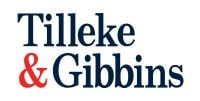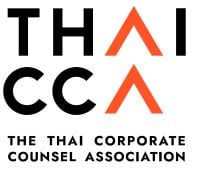
Head of legal | Pi Securities






Suthatip Sridetprasart
Head of legal | Pi Securities
What are the most significant cases or transactions that you have recently been involved in?
The Legal Department plays a pivotal role in achieving the organization’s strategic objectives by driving change and improving business results through a comprehensive understanding of legal and operational issues. Our goal is to provide the highest and best use of our time and expertise, proactively and responsively solving critical problems.
After a thorough review, the legal team identified several areas for improvement. These include clearly defining our role in relation to each strategic objective, implementing a more efficient process for intake and contract review, and consolidating significant external referrals to specialized firm providers.
1. Mergers and Acquisitions (M&A)
We represented a leading securities company and capital venture in the acquisition of a smaller competitor or the potential business company. This transaction involved extensive due diligence, negotiation of purchase agreements, and securing regulatory approvals. The acquisition enabled our company to expand its market share and integrate innovative technologies, significantly enhancing its competitive edge.
2. Regulatory Compliance and Data Protection (PDPA Compliance)
We assisted our company in achieving compliance with Thailand’s Personal Data Protection Act (PDPA). This involved conducting a comprehensive data audit, revising privacy policies, and implementing data protection measures. Our efforts ensured that our company could continue its operations seamlessly across different jurisdictions while adhering to stringent data protection laws, thereby mitigating the risk of substantial fines and reputational damage.
3. Litigation and Dispute Resolution
We represented our company to support and coordinate with external lawyer to handle a complex cross-border commercial dispute involving breach of contract and intellectual property rights. The case required coordination with legal teams and navigating diverse legal systems. Our strategic approach led to a favorable settlement for our client, preserving valuable business relationships and minimizing financial losses.
4. Contract Management and Review
We developed standardized contract templates for a large enterprise to streamline its contract management process. This project involved identifying key clauses, ensuring legal compliance, and training staff on the new templates. The standardized templates reduced the time and cost associated with contract negotiations, enhanced consistency, and mitigated legal risks.
Furthermore, we are making every effort to leverage IT mechanisms to evaluate individual team member performance. We are also developing a program aimed at continuously increasing operational efficiency within the legal department. This involves enhancing alignment with corporate strategies, documenting control processes, and utilizing technology to automate workflows. Ultimately, this will provide valuable insights and allow us to measure performance effectively using key performance indicators (KPIs).
Which recent political, economic or regulatory changes have impacted your work the most in recent years?
In recent years, several political, economic, and regulatory changes in Thailand have significantly impacted our work in the legal field. Three key areas stand out:
Firstly, the Amendment of the Civil and Commercial Code (CCC) and Subordinate Legislation. The recent amendments to the Civil and Commercial Code (CCC) and the introduction of new subordinate legislation have brought about substantial changes that directly affect business operations and legal practices in Thailand.
· Corporate Governance: The amendments have introduced new requirements for corporate governance, such as stricter regulations on company registration, board of directors’ responsibilities, and shareholder rights. This has required us to updating their corporate structures, governance policies, and operational practices to ensure compliance with the new regulations.
· Contract Law: Changes in contract law under the amended CCC have necessitated revisions in how contracts are drafted, executed, and enforced. We have had to ensure that our company’ contracts incorporate the new legal provisions, particularly concerning clauses related to force majeure, dispute resolution, and termination.
· Dispute Resolution: The amendments and new subordinate legislation have influenced dispute resolution processes, requiring adjustments in legal strategies to align with the updated legal framework. We provide our company and related department whom it may concerns with updated advice on mediation, arbitration, and litigation procedures to effectively manage and resolve disputes.
· Subordinate Legislation: The introduction of detailed subordinate legislation has further specified the implementation of the CCC amendments. This has involved advising clients on compliance with new regulations covering areas such as financial reporting, corporate disclosures, and specific sector regulations.
Secondly, Economic Policies and Stimulus Measures. The Thai government’s economic policies and stimulus measures in response to the COVID-19 pandemic have had significant implications for businesses and, consequently, for our legal practice.
· Tax Incentives: Changes in tax policies, including new incentives and relief measures for businesses, have necessitated advising on optimizing their tax strategies and ensuring compliance with the revised tax regulations.
· Employment Law: The pandemic has also led to changes in employment law, particularly regarding workforce reductions, remote working policies, and employee benefits. We have provided Human Resource Department with updated legal advice to navigate these changes and manage their workforce effectively.
Thirdly, Data Protection Laws. The implementation of the Personal Data Protection Act (PDPA) in Thailand, which closely mirrors the EU’s GDPR, has significantly impacted our legal work, particularly in data privacy and protection.
· Compliance Programs: Assisting clients in developing and implementing comprehensive data protection compliance programs has become a major focus. This includes conducting data audits, drafting privacy policies, and setting up data protection management systems.
· Training and Awareness: We have organized extensive training sessions for our employees to ensure their employees understand the new data protection requirements and the importance of compliance with the PDPA.
· Legal Advice: Providing ongoing legal advice on data protection issues, including handling data breaches, data subject rights, and cross-border data transfers, has become a critical part of our service offerings.
The amendment of the Civil and Commercial Code, the government’s economic policies and stimulus measures, and the implementation of the Personal Data Protection Act (PDPA) have been the most impactful political, economic, and regulatory changes affecting our work in Thailand in recent years. Adapting to these changes has required us to update our legal strategies, compliance programs, and advisory services to ensure that our company remain compliant and well-prepared for the evolving legal landscape.
Could you share an example of a time when you came up with an innovation that improved how your legal team works and did not come at a large expense?
Our legal team frequently managed extensive documentation for project preparations and daily legal work routines, which was time-consuming and error-prone due to our reliance on manual processes and email communication. This inefficiency impacted our productivity and delayed our legal work handling.Additionally, we faced challenges with inconsistencies in agreements, which increased legal risks and complicated contract management.
To address these issues, I proposed a two-pronged solution: implementing a collaborative document review system using Google Workspace and developing a standardized agreement template. This approach provided several advantages without incurring significant costs:
1. Real-Time Collaboration: Team members could work on documents simultaneously, viewing changes in real-time, which reduced the back-and-forth of emailing document versions.
2. Version Control: The platform’s automatic version history allowed us to track all changes, compare document versions, and revert to previous versions if necessary.
3. Centralized Storage: Documents were stored in a secure, central location accessible to all authorized team members, eliminating the need for email attachments and reducing the risk of losing critical information.
4. Standardized Agreements: We drafted a standardized agreement template that locked in significant clauses, mitigated legal risks, and ensured the company’s full legal rights in case of contractual breaches. This template facilitated easier use by employees when dealing with counterparties.
Implementation:
1. Research and Selection: I evaluated several cloud-based platforms, considering factors such as cost, ease of use, and compatibility with our existing systems. Google Workspace emerged as the most cost-effective and user-friendly option.
2. Training: I organized training sessions to ensure all team members were comfortable with the new tools. These sessions included hands-on activities to demonstrate how to collaboratively edit documents, use version history, and manage access permissions.
3. Standardization Process: We identified the significant clauses necessary to mitigate legal risks and ensure the company’s rights. A dedicated subgroup of our legal team worked on drafting and refining the standardized agreement template.
4. Pilot Phase: We initiated a pilot phase with a small subgroup to test both the collaborative system and the standardized agreement template. This allowed us to identify and address any issues before a full-scale rollout.
5. Full Rollout: After incorporating feedback and making necessary adjustments, we deployed the collaborative system and the standardized agreement template to the entire legal team.
Outcome:
1. Increased Efficiency: Document review and editing times were reduced by 30%, as team members could now work on documents concurrently without delays caused by emailing drafts back and forth.
2. Enhanced Collaboration: Improved teamwork and communication led to better case preparation and reduced the likelihood of errors, as everyone had access to the latest document versions and could easily see who made specific changes.
3. Cost Savings: The transition to Google Workspace leveraged our existing subscription plans, resulting in minimal additional costs while significantly enhancing our operational efficiency.
4. Improved Consistency: The standardized agreement template ensured all significant clauses were consistently included, reducing legal risks and simplifying contract management.
5. User-Friendly Templates: Employees could easily use the standardized agreement template with counterparties, streamlining the contract creation process and ensuring compliance with company policies.
By implementing Google Workspace and developing a standardized agreement template, we significantly improved our document management and contract drafting processes. This innovation enhanced efficiency, collaboration, and consistency without incurring large expenses, ultimately strengthening our legal operations and reducing risks.
Head of legal | Pi Securities
Head of legal, risk and compliance | Purple Ventures